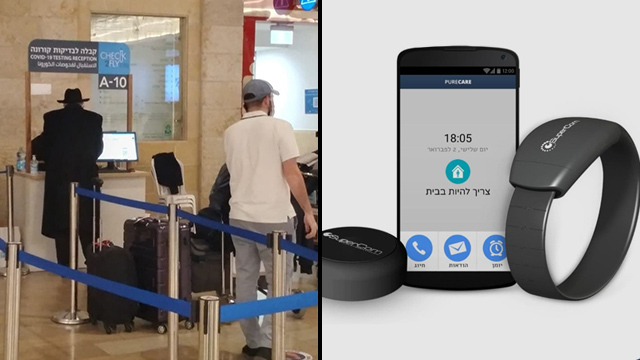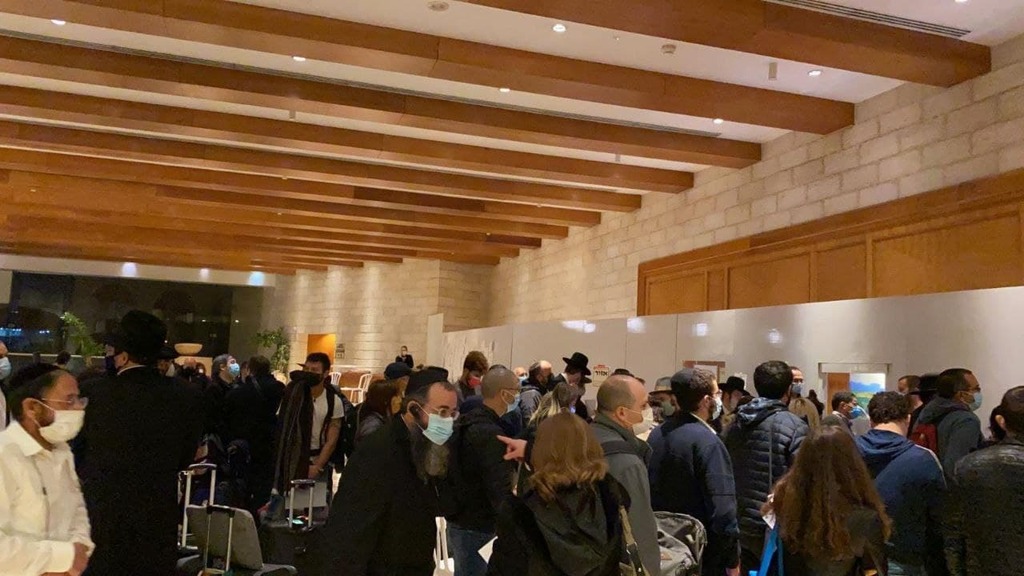Getting your Trinity Audio player ready...
Israeli health officials on Thursday approved a measure to electronically tag arrivals from abroad, which will go in effect next week, in order to ensure coronavirus quarantine regulations are observed.
The Health Ministry on Wednesday introduced a pilot program in which travelers will quarantine at home and be affixed an electronic tag as part of the measures to curb the spread of COVID-19 and its variants.
The first passengers who will be subject to the measure will be those arriving on Arkia flight 232 from Frankfurt, set to arrive at 4:35pm on Monday at Ben-Gurion Airport.
Upon arrival, passengers will decide whether to opt for the tracking bracelet and quarantine at home, or isolate at a state-run coronavirus hotel.
The pilot will include 100 electronic tagging kits, with the plan to expand it to 1,000 bracelets pending approval via legislation.
"Whoever chooses to isolate at home instead of a hotel will be able to do so right at the airport, will be given a bracelet and drive straight to his or her home," said Deputy Health Minister Yoav Kisch.
"The plan is purely a choice and will be used as a tool to reopen Israel's skies. The objective of the pilot is to facilitate an easy outline for Israelis, which will let us reopen the skies and return to the state to normalcy."
Knesset's Constitution, Law and Justice Committee Wednesday approved extending the mandatory quarantine order until March 2 after panel chairman MK Yaakov Asher (United Torah Judaism) initially objected to it, imploring the government to present him with alternatives.
Israel Police representatives refused to take responsibility for supplying the system, but officers will be deployed to enforce breaches of quarantine.
Tracking and identification company SuperCom will operate the program, supplying ankle bracelets, electronic tags and smartphones to some 1,000 Israelis returning from abroad.
"The system includes three parts - an electronic bracelet the person wears, a dedicated smartphone and a tag," said Tal Segev, head of marketing for SuperCom."
Segev also said that though the initial phase includes only 100 kits, they were requested to prepare more.
Meanwhile, the Health Ministry is examining additional technological solutions, such as reintroducing the controversial cellphone tracking scheme operated by the Shin Bet domestic security service last year.




